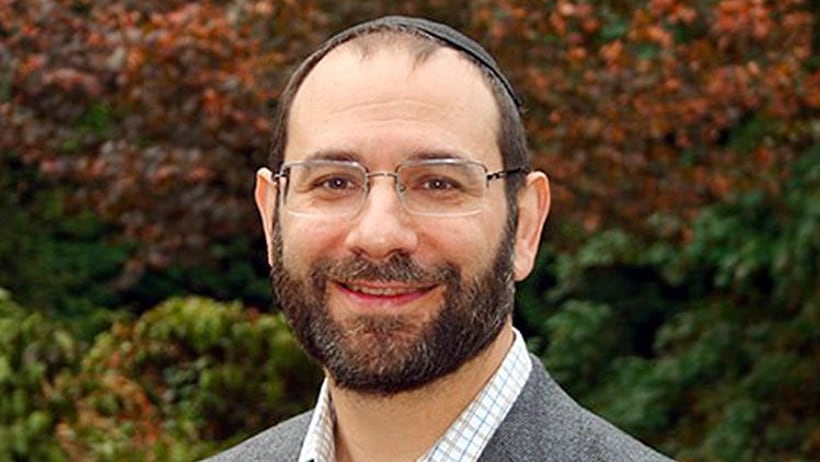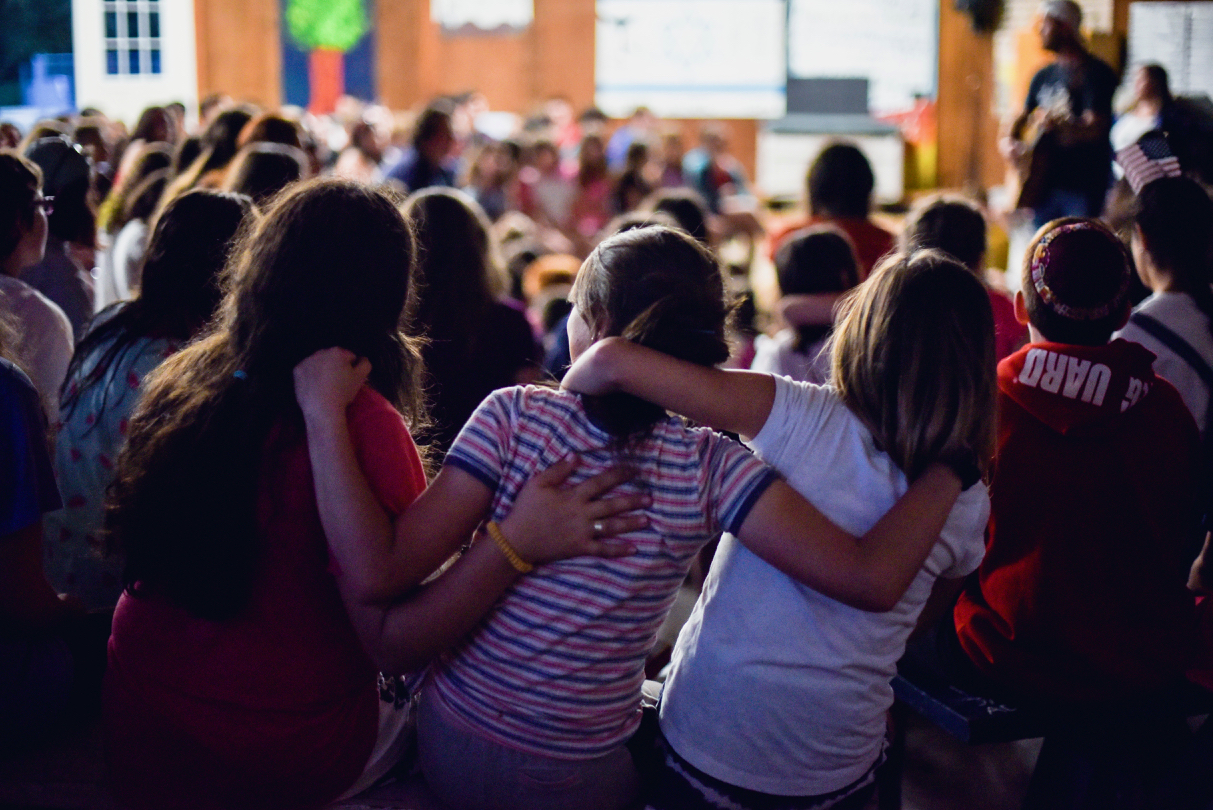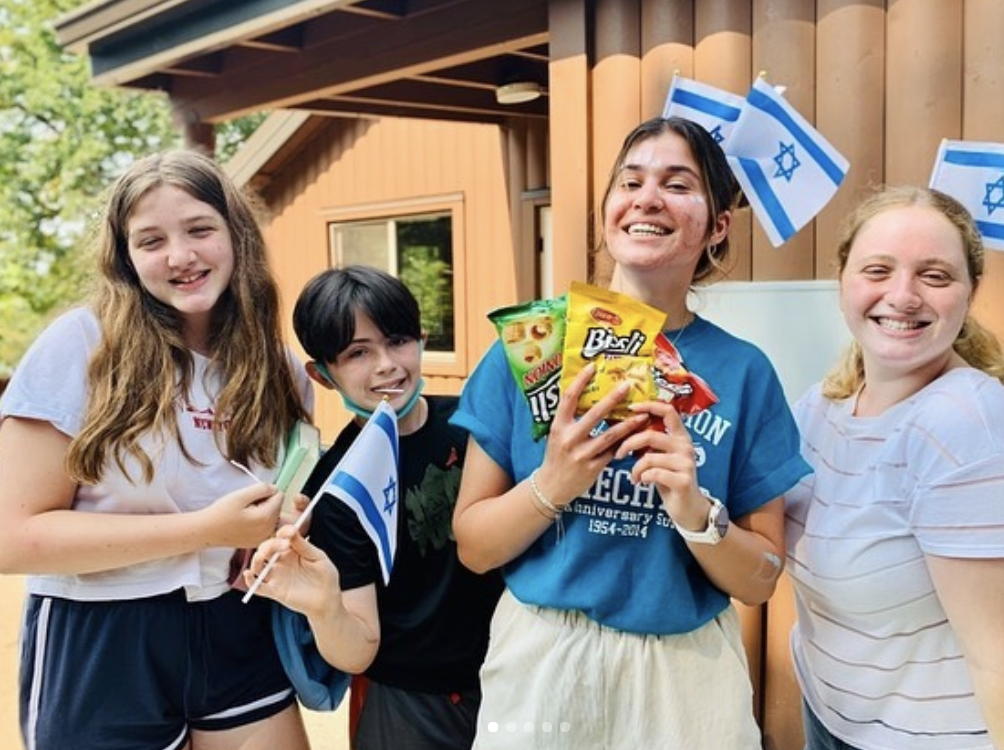
The Magic of Fences

According to the Bible, one is supposed to stay close to home over Shabbat. It was a great rule in ancient times because it ensured strong family and communal ties. Anyone who has ever fought rush-hour traffic gets why such a rule is important. As Jewish towns and neighborhoods grew in size, however, the Torah’s law made it more difficult to create meaningful community—the exact opposite of its original mandate. Geographical spread meant that one couldn’t spend time with cousins or friends who lived more than a mile away.
A workaround was developed, called an eiruv. In colloquial Jewish usage, this refers to the creation of a virtual wall consisting of wires and small “posts,” all of which allowed larger Jewish communities to operate like a single home. While the laws of eiruv are technical, their purpose is especially valuable in our era when people are busy trying to figure out how to strengthen real communities in our increasingly virtual and fragmented world.
Over the past couple of years, Camp Solomon Schechter has been reconstructing parts of its eiruv. As the camp’s religious advisor (mara d’atra), I have provided advice on this project and been sent photographs of the work. This past Shabbat, I was able to visit in person. Like so many of you, I am deeply grateful that we were able to resume camp operations this summer. It was great to meet Frank, the new chef, and check in with Avishai, the onsite camp mashgiach, or kosher supervisor, whom I oversee and communicate with whenever kosher questions arise. I always appreciate my in-person conversations with Zach Duitch.
What mattered most to me, however, was to see how well the eiruv was functioning—and I don’t mean the physical eiruv, which looks great. I mean the spiritual eiruv. After effectively a two-year absence because of Covid-19, would the camp’s community be as strong as I remembered? Would our campers be able to regain their long dormant social skills that are so necessary to live well with one another? Would what happened within the eiruv be meaningfully different from what life outside those posts and wires looks like?

I am not one to wear rose-colored glasses or to sell the sizzle over substance. Without a doubt, some kids were a little bit rusty at the beginning of their session; camp provided them an invaluable opportunity to continue their social growth. What a valuable opportunity for them! I am also pleased to announce that, overwhelmingly, the magic of CSS remains intact. Campers were happy. Real friendships were evident wherever I looked. Laughter rang out on the footpaths, in the amphitheater, and by the lakefront. In conversations with counselors, I got to hear specific details about the impact of Covid on our youth, and the important work camp was doing to restore a sense of normalcy and joy to our precious youth. It didn’t hurt that I also got to watch my younger son’s cabin clinch the basketball championship, but that’s just one poppa’s pride.
A dozen more stories fill my head. Let me share two moments that should make us all feel confident about the camp’s spiritual foothold and community. One happened as I was walking to meet someone and this excited camper loudly exclaimed to friends, “I love being Jewish.” Wow! What an amazing spontaneous outburst, especially since it wasn’t meant for adult ears. I was just fortunate to overhear it.
The other moment occurred during havdalah. Havdalah is always a special moment at CSS as the entire camp gathers around the lake and bids farewell to Shabbat. It is always a heightened moment of connection. This particular Saturday, a new camper came forward to speak. She shared her nervousness as a first-time camper. Would she need to pretend so that she could fit in? No, she said with touching conviction. The camp she found allowed her to be fully herself and she witnessed how that story was repeated over and over. Camp Solomon Schechter supports people in their individuality, and she got it. What a powerful advocate for Jewish camping in general, and the special juju (or JewJew) of CSS!

At the end of Saturday night, the inner gate, which was closed on Friday to form the final link of the eiruv, was reopened. With that simple act, the physical eiruv for the camp disappeared. But the power of fences and what they allow to happen within? That remains. As I drove off on Sunday, I left feeling deeply content. The world outside the gates of Jewish community doesn’t always look or feel like we might desire. Yet so long as there are places where Jewish communities can thrive, so long as we maintain strong camps and synagogues where our values can be given expression—well then, when we leave our strongholds of faith, community, and inclusion, we get to bring some of that out into the larger world.
That’s the magic of fences. That’s the magic of Camp Solomon Schechter.
Warm regards,
David
Rabbi David Kosak (Rav D) is the mara d’atra of Camp Solomon Schechter and serves as the senior rabbi of Congregation Neveh Shalom in Portland, Oregon.